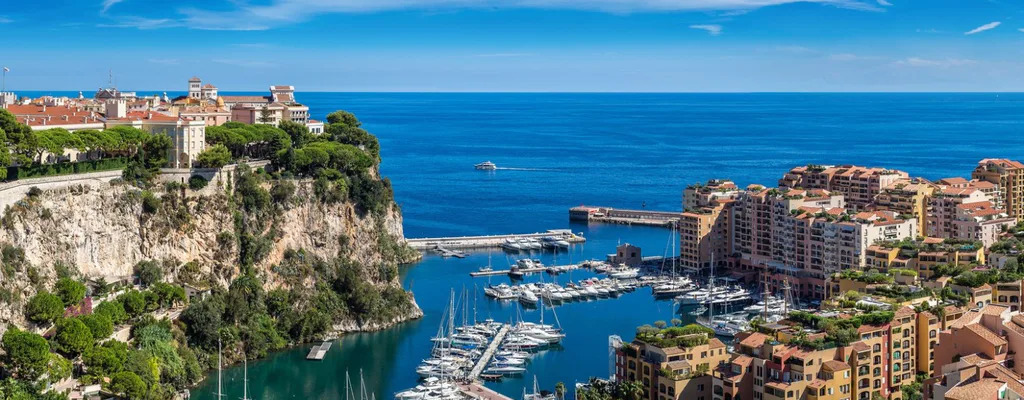LATEST NEWS FROM THE GRIMALDI FORUM MONACO
by the Team
MONACO. Montecarlotimes’Team is pleased to share the latest news and invites by the Grimaldi Forum, the Prince Albert II Foundation, the Energy Transition Mission and the Monaco Tourist and Congress Department, united within a single editorial board. First, the “Environmental Photography Prize” from the Prince Albert II Foundation which mobilized nearly 1,400 photographers and submitted 6,000 photos in competition. The photographer of the year 2021 is Kathleen Ricker with “Gorilla by the water”, picturing a young male gorilla hanging out by the edge of the stream. Secondly, if it has not yet been done, it is essential to sign the Pact for the Energy Transition of the Principality as well as to follow the Monaco business tourism communication campaign, which focuses on green. The eco-design solutions for the Grimaldi Forum exhibitions, reproducible at any event, are on the front line! Thanks to #MAG News and to the promotion by Montecarlotimes.eu alike, you can stay informed of the latest trends and actions dedicated to energy transition and sustainable development in the Principality. In fact, Monaco’s commitment to environmental protection is one of the pillars of the campaign to relaunch business tourism in the Principality.

Emmanuel’s image shows a stag using a wildlife crossing in the Charente-Maritime region of France, over the A10 highway. These highways allow for ecological continuity and safe and free travel for wildlife.
#REEVENT announces a new strategy for ever more responsible Monegasque tourism, around players in the sector already incredibly involved in the field of energy transition. # REEVENT is the rallying call launched by the Monaco Convention Bureau to revive business tourism in the Principality in 2021. The global crisis generated by the Covid-19 pandemic is having a hard impact on the tourism industry and more particularly the MICE * activity (Meeting, Incentive, Conference and Exhibition). Today, while the recovery is hoped for soon, tourism organizers and players have all realized that they have to rethink their model, while offering the security guarantees that everyone is entitled to expect.

Thus, the #REEVENT campaign highlights the structuring values of the Destination, namely safety, service, unity of place and action and commitment to the environment. In the Principality, professionals from the sector federated around the Tourism and Congress Department (DTC) are working to make this change, which is deemed essential, a success; it implies inventiveness and innovation, and must focus on intellectual capital, flexibility, optimization of transport and spaces, with the greatest respect for the environment. Sustainability is certainly the watchword of this emerging tourism. The actors have understood this well and are already very numerous to commit themselves, whether through environmental certifications, by operating the energy transition, by striving to reduce consumption and to think locally. The White Paper on Responsible Tourism – piloted by the Tourism Department with the help of all stakeholders, the Energy Transition Mission, and the Environment Department – whose release is planned very soon, will make it possible to establish a strategy to prepare for the future of even more responsible Monegasque tourism. For more information: the website www.letsreevent.com linked to that of the Convention Bureau of Monaco. Also, as part of its environmental management system based on continuous improvement since 2008, the Monaco Congress and Culture Centre added in 2016 the eco-design of its summer exhibitions to the list of its commitments. 73% of waste from GFM exhibitions is now sorted and recycled, compared to 13% 5 years ago. In 2016, the Grimaldi Forum Monaco initiated an eco-design process for its exhibitions by focusing first on the waste generated by the designed scenography. Its objectives were first to reduce the production of its waste at the source, to reuse its scenography furniture and to recycle the materials used while maintaining the aesthetic level of the scenography and respecting the constraints linked to the conservation of works. This eco-responsible exhibition initiative is part of the ISO 14001 certification of the Principality’s Culture and Congress Centre, obtained for the first time in 2008 and based on the continuous improvement of its environmental performance.

By integrating the issue of waste for more than 5 years from the design phase of the exhibition, GFM has, for example, invested in removable and reusable display cases. At the end of the cycle, the scenography material is then given to third parties or returned to the supplier for a “second life”. In general, the GFM favours recyclable or ecological materials, such as wooden rails rather than plasterboard. Finally, the best waste being that which is not produced, the surfaces of the wooden rails have been drastically reduced to the only areas where the works are hung. The balances of the waste generated by the exhibitions made it possible to measure, in addition to an overall reduction in their volume, a considerable increase in the proportion of waste that is sorted and recycled: 13% of this waste was sorted and recycled 5 years ago, 73% of them are today! Always in search of efficiency and in the logical continuation of the overall assessment of the waste generated by its exhibitions, the GFM is now formalizing the drafting of a complete annual assessment which will allow its efforts and results to be assessed at each stage of the cycle. life of an exhibition (Study, scenography, signage, lighting, transport of works, communication, etc… until its management at the end of its life). Beyond the production of exhibitions, this innovative initiative joins the recent movement of other exhibition venues around the world which have decided to take action to limit their impact on the environment. It shows that the concept of temporary exhibition can be combined with the principle of sustainable development and that it is possible to act in the cultural field as in all other fields to improve the preservation of our planet. Using the 3R principle, -Reduce, Reuse, Recycle-, this initiative is reproducible and can be applied to any type of event, public or private.





